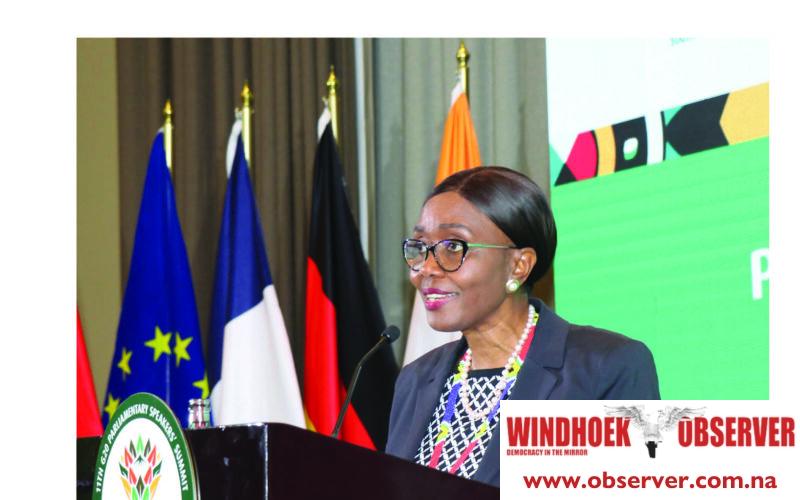Hertta-Maria Amutenja
The speaker of the National Assembly, Saara Kuugongelwa-Amadhila, says Namibia has failed to fully implement gender-responsive budgeting, with only 1.5% of the national budget confirmed as gender-specific.
She was speaking at the 11th G20 Parliamentary Speakers’ Summit during a meeting of the P20 second meeting of women parliamentarians in Kleinmond, South Africa, on Tuesday.
She said the gender-responsive budgeting guidelines, approved by the cabinet in 2014, remain largely unimplemented.
Over 95% of the budget is still allocated through mainstream categories that do not specify gender impacts.
Kuugongelwa-Amadhila noted that Namibia’s experience shows specific allocations to women can deliver results.
“When the Ministry of Gender Equality allocates 50% of income generation grants to women, and when Health and Social Services specifically budgets for maternal health and contraceptives, real change happens. But sporadic success isn’t systemic transformation,” she said.
She called on ministries, especially education, health, mining and agriculture, to issue gender budget statements as part of their allocations.
Kuugongelwa-Amadhila also urged government agencies to institutionalise gender-sensitive budgeting.
She said audits of past budgets should ensure allocations reach women in rural areas, Indigenous communities, and young women affected by high teenage pregnancy rates.
Parliament has introduced training for MPs on gender-sensitive budgeting with support from development partners.
Kuugongelwa-Amadhila stressed the importance of oversight.
“We must capacitate parliaments to strengthen their oversight by demanding mid-term implementation progress reports on budget performance through a gender lens,” she said.
She said gender impact assessments should also be carried out for legislation.
“Namibia’s parliament has learnt that laws require more than good intentions. Systematic assessments ensure that new legislation does not overlook women’s needs,” she said.
She emphasised the parliament’s role in driving gender-responsive governance and urged fellow parliamentarians to build structured partnerships with women’s civil society organisations so that interventions move beyond consultation to meaningful collaboration.
The summit, which was held from 29 to 30 September, brought together parliamentary speakers and women parliamentarians under the theme ‘Women Parliamentarians for Global Solidarity, Equality and Sustainability’.




